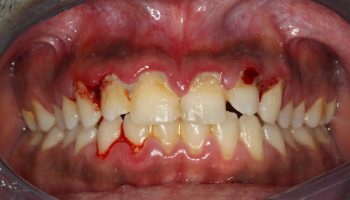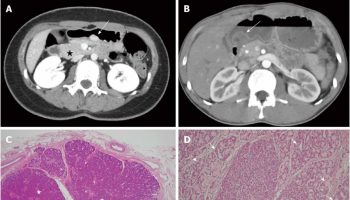Dacarbazine
Dacarbazine popularly known as DTIC chemotherapy or Dimethyl Triazeno Imidazol Carboxamide, is an intravenously administered alkylating agent or cancer medication that interferes with the growth and spread of cancer cells in the body. Dacarbazine is used to treat malignant melanoma and Hodgkin’s disease (Hodgkin’s lymphoma). Dacarbazine is in a class of medications known as purine analogs. It works by slowing or stopping the growth of cancer cells in your body.
Dacarbazine was approved for use in the United States in 1975. Current indications include Hodgkin lymphoma and metastatic malignant melanoma usually in combination with other antineoplastic agents. Dacarbazine is available for injection in vials of 10 mg/mL and the recommended dose varies by indication and body weight (2 to 4.5 mg/kg/day or 150 mg/m²/day). Dacarbazine is given by intravenous infusion typically for five to ten days in cycles of every 3 to 4 weeks.
Dacarbazine injection comes as a powder to be mixed with liquid to be injected intravenously (into a vein) over 1 minute or infused intravenously over 15 to 30 minutes by a doctor or nurse in a medical facility. When dacarbazine is used to treat melanoma, it may be injected once a day for 10 days in a row every 4 weeks or it may be injected once a day for 5 days in a row every 3 weeks. When dacarbazine is used to treat Hodgkin’s lymphoma is may be injected once a day for 5 days in a row every 4 weeks or it may be injected once every 15 days.
Ask your pharmacist or doctor for a copy of the manufacturer’s information for the patient.
Dacarbazine common side effects are hypotension, alopecia, anoxia, nausea, vomiting, headache, peripheral neuropathy, and flu-like illness. Rare potentially severe adverse events include severe bone marrow suppression, neutropenia, sepsis, embryo-fetal toxicity and de novo cancinogenesis from long term use 1.
Dacarbazine injection must be given in a hospital or medical facility under the supervision of a doctor who is experienced in giving chemotherapy medications for cancer.
Dacarbazine can cause a severe decrease in the number of blood cells in your bone marrow. This may cause certain symptoms and may increase the risk that you will develop a serious infection or bleeding. If you have a low number of blood cells, your doctor may stop or delay your treatment. If you experience any of the following symptoms, call your doctor immediately: fever, sore throat, ongoing cough and congestion, or other signs of infection; unusual bleeding or bruising.
Dacarbazine may cause serious or life-threatening liver damage. Liver damage may occur more often in people that are receiving other cancer chemotherapy drugs along with dacarbazine treatment. If you experience any of the following symptoms, call your doctor immediately: nausea, extreme tiredness, unusual bleeding or bruising, lack of energy, loss of appetite, pain in the upper right part of the stomach, or yellowing of the skin or eyes.
Dacarbazine injection has caused birth defects in animals. This medication has not been studied in pregnant women, but it is possible that it may also cause birth defects in babies whose mothers received dacarbazine injection during pregnancy. You should not use dacarbazine injection while you are pregnant or plan to become pregnant unless your doctor decides that this is the best treatment for your condition.
Keep all appointments with your doctor and the laboratory. Your doctor will order certain tests to check your body’s response to dacarbazine.
Talk to your doctor about the risks of using dacarbazine injection.
Dacarbazine mechanism of action
Dacarbazine is a triazene analogue of 5-aminoimidazole-4-carboxamide, a precursor in purine biosynthesis 1. Dacarbazine mechanism of action in cancer chemotherapy is unclear. Dacarbazine may act as a purine analogue and antimetabolite. In addition, it is extensively metabolized in the liver and produces intermediates some of which have alkylating activity, causing methylation, modification and cross linking of DNA, thus inhibiting DNA, RNA and protein synthesis.
Dacarbazine (DTIC) special precautions
Before receiving dacarbazine:
- tell your doctor and pharmacist if you are allergic to dacarbazine, any other medications, or any of the ingredients in dacarbazine injection. Ask your pharmacist for a list of the ingredients.
- tell your doctor and pharmacist what other prescription and nonprescription medications, vitamins, nutritional supplements, and herbal products you are taking or plan to take.
- tell your doctor if you are breast-feeding.
- plan to avoid unnecessary or prolonged exposure to sunlight and to wear protective clothing, sunglasses, and sunscreen. Dacarbazine may make your skin sensitive to sunlight.
It is very important that your doctor check your progress at regular visits to make sure that this medicine is working properly and to check for unwanted effects.
While you are being treated with dacarbazine, and after you stop treatment with it, do not have any immunizations (vaccinations) without your doctor’s approval. Dacarbazine may lower your body’s resistance and there is a chance you might get the infection the immunization is meant to prevent. In addition, other persons living in your household should not take oral polio vaccine since there is a chance they could pass the polio virus on to you. Also, avoid persons who have taken oral polio vaccine within the last several months. Do not get close to them, and do not stay in the same room with them for very long. If you cannot take these precautions, you should consider wearing a protective face mask that covers the nose and mouth.
Dacarbazine can temporarily lower the number of white blood cells in your blood, increasing the chance of getting an infection. It can also lower the number of platelets, which are necessary for proper blood clotting. If this occurs, there are certain precautions you can take, especially when your blood count is low, to reduce the risk of infection or bleeding:
- If you can, avoid people with infections. Check with your doctor immediately if you think you are getting an infection or if you get a fever or chills, cough or hoarseness, lower back or side pain, or painful or difficult urination.
- Check with your doctor immediately if you notice any unusual bleeding or bruising; black, tarry stools; blood in urine or stools; or pinpoint red spots on your skin.
- Be careful when using a regular toothbrush, dental floss, or toothpick. Your medical doctor, dentist, or nurse may recommend other ways to clean your teeth and gums. Check with your medical doctor before having any dental work done.
- Do not touch your eyes or the inside of your nose unless you have just washed your hands and have not touched anything else in the meantime.
- Be careful not to cut yourself when you are using sharp objects such as a safety razor or fingernail or toenail cutters.
- Avoid contact sports or other situations where bruising or injury could occur.
If dacarbazine accidentally seeps out of the vein into which it is injected, it may damage some tissues and cause scarring. Tell the doctor or nurse right away if you notice redness, pain, or swelling at the place of injection.
Allergies
Tell your doctor if you have ever had any unusual or allergic reaction to this medicine or any other medicines. Also tell your health care professional if you have any other types of allergies, such as to foods, dyes, preservatives, or animals. For non-prescription products, read the label or package ingredients carefully.
Pediatric
Studies on this medicine have been done only in adult patients and there is no specific information comparing use of dacarbazine in children with use in other age groups.
Geriatric
Many medicines have not been studied specifically in older people. Therefore, it may not be known whether they work exactly the same way they do in younger adults or if they cause different side effects or problems in older people. There is no specific information about the use of dacarbazine in the elderly.
Pregnancy
Pregnancy Category C: Animal studies have shown an adverse effect and there are no adequate studies in pregnant women OR no animal studies have been conducted and there are no adequate studies in pregnant women.
Breastfeeding
There are no adequate studies in women for determining infant risk when using this medication during breastfeeding. Weigh the potential benefits against the potential risks before taking dacarbazine while breastfeeding.
Drug Interactions
Although certain medicines should not be used together at all, in other cases two different medicines may be used together even if an interaction might occur. In these cases, your doctor may want to change the dose, or other precautions may be necessary. When you are taking dacarbazine, it is especially important that your healthcare professional know if you are taking any of the medicines listed below. The following interactions have been selected on the basis of their potential significance and are not necessarily all-inclusive.
Using dacarbazine with any of the following medicines is not recommended. Your doctor may decide not to treat you with this medication or change some of the other medicines you take.
- Measles Virus Vaccine, Live
- Mumps Virus Vaccine, Live
- Rotavirus Vaccine, Live
- Rubella Virus Vaccine, Live
- Varicella Virus Vaccine, Live
- Zoster Vaccine, Live
Using dacarbazine with any of the following medicines is usually not recommended, but may be required in some cases. If both medicines are prescribed together, your doctor may change the dose or how often you use one or both of the medicines.
- Adenovirus Vaccine
- Bacillus of Calmette and Guerin Vaccine, Live
- Cholera Vaccine, Live
- Dengue Tetravalent Vaccine, Live
- Influenza Virus Vaccine, Live
- Pexidartinib
- Poliovirus Vaccine, Live
- Smallpox Vaccine
- Typhoid Vaccine
- Yellow Fever Vaccine
Using dacarbazine with any of the following medicines may cause an increased risk of certain side effects, but using both drugs may be the best treatment for you. If both medicines are prescribed together, your doctor may change the dose or how often you use one or both of the medicines.
- Aldesleukin
Other interactions
Certain medicines should not be used at or around the time of eating food or eating certain types of food since interactions may occur. Using alcohol or tobacco with certain medicines may also cause interactions to occur. Discuss with your healthcare professional the use of your medicine with food, alcohol, or tobacco.
Other medical problems
The presence of other medical problems may affect the use of this medicine. Make sure you tell your doctor if you have any other medical problems, especially:
- Chickenpox (including recent exposure) or
- Herpes zoster (shingles)—Risk of severe disease affecting other parts of the body
- Infection—Dacarbazine can decrease your body’s ability to fight infection
- Kidney disease or
- Liver disease—Effects of dacarbazine may be increased because of slower removal from the body
Dacarbazine uses
Dacarbazine (DTIC) is used to treat Hodgkin’s disease (Hodgkin’s lymphoma) and malignant melanoma (a type of skin cancer). Dacarbazine (DTIC) may also be used to treat other kinds of cancer, as determined by your doctor.
Dacarbazine interferes with the growth of cancer cells, which are eventually destroyed. Since the growth of normal body cells may also be affected by dacarbazine, other effects will also occur. Some of these may be serious and must be reported to your doctor. Other effects, like hair loss, may not be serious but may cause concern. Some effects may not occur for months or years after the medicine is used.
Before you begin treatment with dacarbazine, you and your doctor should talk about the good this medicine will do as well as the risks of using it.
Dacarbazine is to be administered only by or under the immediate supervision of your doctor.
Off label uses
Medullary thyroid cancer (advanced)
Data from a small number of patients studied in a limited number of clinical trials suggest that dacarbazine (in combination with fluorouracil with or without streptozocin or with cyclophosphamide and vincristine) may be beneficial for the treatment of advanced refractory medullary thyroid cancer.
According to guidelines from the American Thyroid Association for management of medullary thyroid carcinoma, combination chemotherapy with dacarbazine should not be administered as first-line therapy in patients with persistent or recurrent disease; tyrosine kinase inhibitors should be first-line systemic therapy in the setting of symptomatic or progressive metastatic disease.
Pancreatic neuroendocrine tumors (advanced)
Data from a phase II study suggest that dacarbazine may be beneficial for the treatment of advanced pancreatic neuroendocrine tumors.
Pheochromocytoma (malignant)
Data from a limited number of patients in a small non-randomized study suggest that dacarbazine (in combination with cyclophosphamide and vincristine) may be beneficial for the treatment of malignant pheochromocytoma.
Soft-tissue sarcomas (advanced)
Data from a phase III randomized study in patients with advanced soft-tissue and bone sarcomas and data from a phase II study in patients with inoperable or metastatic Ewing’s sarcoma, rhabdomyosarcoma, or osteosarcoma support the use of dacarbazine (in combination with doxorubicin, ifosfamide, and mesna) for the treatment of this condition. The phase III study supports the use of dacarbazine (in combination with doxorubicin) if patients cannot tolerate ifosfamide therapy. Data from another phase III study also support the use of continuous infusion dacarbazine (in combination with doxorubicin) for the treatment of advanced soft tissue sarcomas.
Dacarbazine dose
Dacarbazine is sometimes given together with certain other medicines. If you are using a combination of medicines, it is important that you receive each one at the proper time. If you are taking some of these medicines by mouth, ask your health care professional to help you plan a way to remember to take them at the right times.
Dacarbazine often causes nausea, vomiting, and loss of appetite. Dacarbazine injection may also cause a feeling of burning or pain. However, it is very important that you continue to receive the medicine, even if you have discomfort or begin to feel ill. After 1 or 2 days, your stomach upset should lessen. Ask your health care professional for ways to lessen these effects.
Adult dose for malignant melanoma
Use: For metastatic malignant melanoma
- 2 to 4.5 mg/kg IV once a day for 10 days; repeat every 4 weeks OR
- 250 mg/m² IV once a day for 5 days; repeat every 3 weeks
Adult dose for Hodgkin’s disease (Hodgkin’s lymphoma)
Use: For Hodgkin’s disease as a second-line therapy when used in combination with other agents
- 150 mg/m² IV once a day for 5 days in combination therapy; repeat every 4 weeks OR
- 375 mg/m² IV on Day 1 in combination therapy; repeat every 15 days
Renal dose adjustments
- Data not available
Dialysis
- Data not available
Liver dose adjustments
- Data not available.
Dacarbazine side effects
Dacarbazine may cause side effects. Tell your doctor if any of these symptoms are severe or do not go away:
- nausea
- vomiting
- loss of appetite
- diarrhea
- sores in the mouth and throat
- temporary hair loss (after treatment with dacarbazine has ended, normal hair growth should return)
- feeling of burning or tingling on the face
- flushing
- flu-like symptoms
More common
- Redness, pain, or swelling at place of injection
Less common
- black, tarry stools
- blood in urine or stools
- cough or hoarseness, accompanied by fever or chills
- fever or chills
- lower back or side pain, accompanied by fever or chills
- painful or difficult urination, accompanied by fever or chills
- pinpoint red spots on skin
- unusual bleeding or bruising
Rare
- shortness of breath
- stomach pain
- swelling of face
- yellow eyes or skin
Some side effects can be serious. If you experience any of these symptoms or those listed in the IMPORTANT WARNING section, see your doctor immediately:
- redness, pain, swelling, or burning at the site where the injection was given
- hives
- skin rash
- itching
- difficulty breathing or swallowing
- fever, muscle aches, and general feeling of pain and tiredness
Dacarbazine may cause other side effects. Call your doctor if you have any unusual problems while taking dacarbazine.
Dacarbazine toxicity
Symptoms of anorexia, nausea and vomiting are the most frequently noted of all toxic reactions. Over 90% of patients are affected with the initial few doses. The vomiting lasts 1 to 12 hours and is incompletely and unpredictably palliated with phenobarbital and/or prochlorperazine. Rarely, intractable nausea and vomiting have necessitated discontinuance of therapy with dacarbazine for injection. Rarely, dacarbazine for injection has caused diarrhea. Some helpful suggestions include restricting the patient’s oral intake of food for 4 to 6 hours prior to treatment. The rapid toleration of these symptoms suggests that a central nervous system mechanism may be involved, and usually these symptoms subside after the first 1 or 2 days.
There are a number of minor toxicities that are infrequently noted. Patients have experienced an influenza-like syndrome of fever to 39°C, myalgias and malaise. These symptoms occur usually after large single doses, may last for several days, and they may occur with successive treatments.
Alopecia has been noted as has facial flushing and facial paresthesia. There have been few reports of significant liver or renal function test abnormalities in man. However, these abnormalities have been observed more frequently in animal studies.
Erythematous and urticarial rashes have been observed infrequently after administration of dacarbazine for injection. Rarely, photosensitivity reactions may occur.
References




